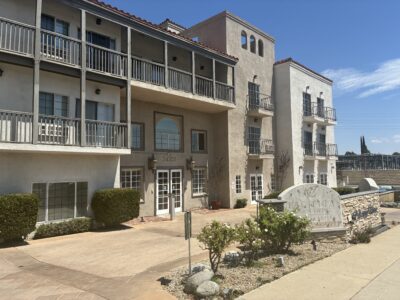Californians overwhelmingly voted to restore felony penalties for repeat thieves and deadly drug dealers, but Gov. Gavin Newsom’s budget offers nothing to enforce the law — while finding $1 billion for a bullet train mired in delays and cost overruns.
Yes it is true.
In 2014, California voters approved Proposition 47, the Safe Neighborhoods and Schools Act, pitched to voters as a way to reduce prison overcrowding, conserve resources and focus on violent offenders.
Authored by then-San Francisco District Attorney George Gascón (no surprise), Prop 47 was backed by Californians for Safety and Justice, the ACLU of California, the NAACP, the Drug Policy Alliance, and other reform donors.
Its goal was to reclassify non-violent offenses — such as drug possession and theft of property worth less than $950 — from felonies to misdemeanors, and redirect the prosecutorial savings into education, mental health and victim services.
Over the next decade, however, the political narrative began to shift.
While some crime categories remained stable, high-profile incidents of “smash-and-grab” retail theft, organized shoplifting rings, and open drug use in public spaces captured media attention and fueled a perception that California had become too soft on crime.
By the early 2020s, viral videos of thieves brazenly clearing out store shelves and walking past powerless employees circulated nationwide.
Business groups, retail associations, and law enforcement officials began lobbying lawmakers to address what they called “the Prop. 47 loophole.”
Retailers suffered hundreds of millions of dollars of losses. Thugs were on TikTok filming their “scores.” Gangs started looting in coordinated efforts as the $950 felony threshold created no disincentives for repeat offenders to commit multiple low-level thefts with minimal consequences.
District attorneys in many counties were frustrated that their hands were tied when prosecuting serial offenders, especially with already strained misdemeanor court dockets.
Adding to the increased crime, California faced a worsening fentanyl crisis with overdoses climbing as fentanyl contributed to a majority of drug fatalities.
Prosecutors across the state lamented the lack of effective leverage to compel treatment or deter street-level dealers when most drug possession cases carried only misdemeanor charges.
About 70% of Californians — across party lines — responded to polling that questioned restoring felony penalties for repeat theft and certain drug crimes. Polls and Californian’s growing frustration set the stage for Proposition 36, a ballot measure designed to roll back some of Prop. 47’s soft-on-crime provisions while adding new treatment-focused sentencing options.
Officially titled the Drug and Theft Crime Penalties and Treatment-Mandated Felonies Initiative, Prop. 36 qualified for the November 2024 ballot after a well-funded campaign led by law enforcement groups, retail coalitions, and bipartisan political figures.
The measure had three major pillars: Reclassifying certain repeat petty thefts and drug possession offenses as felonies if the defendant had two or more prior convictions; creating “treatment-mandated felonies” for certain drug crimes, allowing defendants to avoid prison if they successfully completed court-ordered treatment; and imposing stronger deterrents for lethal drug dealing, including requiring judges to warn convicted dealers that a future fatal overdose could result in a murder charge.
When the votes were counted, the result was decisive: Nearly 70% of Californians supported Prop. 36.
The law took effect Dec. 18, 2024, and within months prosecutors up and down the state began filing thousands of new felony cases under its provisions. They were finally able to do their jobs.
The issue now is that Prop. 36 contained no dedicated funding source. Implementing it requires expanded treatment capacity, increased probation staffing, more court resources, and additional public defender and prosecutor hours.
Early estimates placed the annual cost between $250 million and $400 million.
When Gov. Gavin Newsom released his May 2025 budget revision, he allocated zero state dollars for Prop. 36 implementation.
Facing a projected $12 billion state deficit, Newsom argued that counties — many of which had strongly supported the measure — should bear the cost themselves. The California Legislature attempted to fill part of the gap, approving a one-time $110 million package: $50 million for behavioral health treatment, $30 million for courts, and $15 million for public defenders.
Keep in mind that in 2021-22, California had a $75.7 BILLION general fund surplus. In 2022-23 the surplus grew to $95.5 BILLION.
You read that right: $95.5 billion.
In 2023-24 that surplus was wiped out and the state then had a $31.5 billion DEFICIT as of June 2023. Gavin alone is responsible for the deficit we now find ourselves in with his complete mismanagement of our state, and now funding to restore law and order is in peril.
Without proper funding, Prop. 36 will fail to deliver to the voters its promise of tougher penalties for crime. Yet no leaders in Sacramento have pushed back and called Gavin out for his $1 BILLION per year allocation for the train to nowhere for the next 20 years as allocated in his latest budget! This bullet train allocation more than covers the cost to fully fund Prop. 36 as the voters demand. And I dare say I bet voters want tougher criminal sentences over unfinished train track in Modesto.
With Prop. 36 on the books but unfunded, California voters have been screwed over once again. Once again voters are left wondering whether their leaders are truly committed to delivering on the policies they enact.
Denise Lite is a Santa Clarita resident. “Right Here, Right Now” appears Saturdays and rotates among local Republicans.










